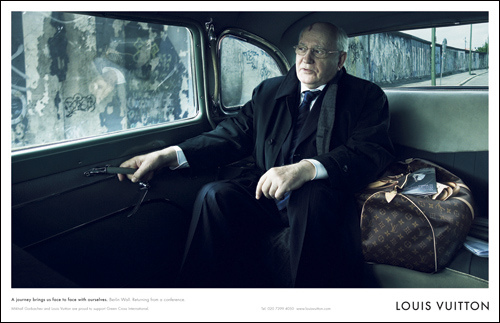Mikhail Gorbachev is all over the map when considering the current state of Russia–afraid of nuclear war, believing Russia is still mostly democratic, regretful of the breakup of the Soviet Union, opposing of sanctions–but who could blame him? Under Vladimir Putin, who will be judged even more harshly by history once all his skeletons surface, Russia is playing a dangerous twentieth-century game in the twenty-first century, ignoring that the rules have changed. An excerpt from a new Gorbachev interview conducted by Matthias Schepp and Britta Sandberg of Spiegel:
Spiegel:
Michael Sergeyevich, few contributed more to ending the Cold War than you. Now it is returning as a result of the Ukraine crisis. How painful is that?
Mikhail Gorbachev:
It gives one a feeling of déjà-vu. Perhaps that would even make a good headline for this interview: Everything appears to be repeating itself. There was a time for building a Wall and a time for tearing it down. I’m not the only person to thank for the fact that this wall no longer exists. (Former Chancellor) Willy Brandt’s Ostpolitik was important, as were the protests in Eastern Europe. Now, new walls are being built and the situation is threatening to escalate. I do, in fact, see all the signs of a new Cold War. Things could blow up at any time if we don’t act. The loss of trust is disastrous. Moscow no longer believes the West and the West doesn’t believe Moscow. That’s terrible.
Spiegel:
Do you think it is possible there could be another major war in Europe?
Mikhail Gorbachev:
Such a scenario shouldn’t even be considered. Such a war today would inevitably lead to a nuclear war. But the statements from both sides and the propaganda lead me to fear the worst. If one side loses its nerves in this inflamed atmosphere, then we won’t survive the coming years.
Spiegel:
Aren’t you overstating things a bit?
Mikhail Gorbachev:
I don’t say such things lightly. I am a man with a conscience. But that’s the way things are. I am truly and deeply concerned. …
Spiegel:
As general secretary of the Communist Party, you fought for glasnost (openness) and perestroika (restructuring) in your country. Has everything that you pushed for during your political life fallen into ruin under Putin?
Mikhail Gorbachev:
I take an entirely different view. Glasnost isn’t dead and neither is democracy. A new generation has grown up in Russia under entirely different conditions — and it is much freer than in the Soviet Union. The clock can no longer be turned back. Nothing has fallen into ruin.
Spiegel:
Yet Russian leadership is more authoritarian than it has been in a long time.
Mikhail Gorbachev:
What do you mean by “a long time”?
Spiegel:
Since pre-Gorbachev times in the Soviet Union. There are once again limits on the freedom of opinion and the press, and elections aren’t free.
Mikhail Gorbachev:
Then we have the same view of things. Since then, I have become an old man and I have a long journey behind me. When I became a member of the Communist Party, I wrote an essay called: “Stalin, our war glory, Stalin inspires us, the youth.” Today I support those who fight against venerating Stalin.
Spiegel:
Putin is limiting democracy, but a majority still appears to be satisfied with his leadership. Why?
Mikhail Gorbachev:
When Putin moved into the Kremlin, he inherited a difficult legacy. There was chaos everywhere. The economy was crippled, entire regions wanted to secede. There was a threat of Russia disintegrating. Putin stopped this process and that will remain the greatest achievement of his time in office. Even if Putin hadn’t managed to achieve anything else, he will always be credited with that. Yes, he does sometimes resort to authoritarian methods. I have often spoken out against this. That’s also why I opposed him taking office for a third term.•
Tags: Britta Sandberg, Matthias Schepp, Mikhail Gorbachev, Vladimir Putin

